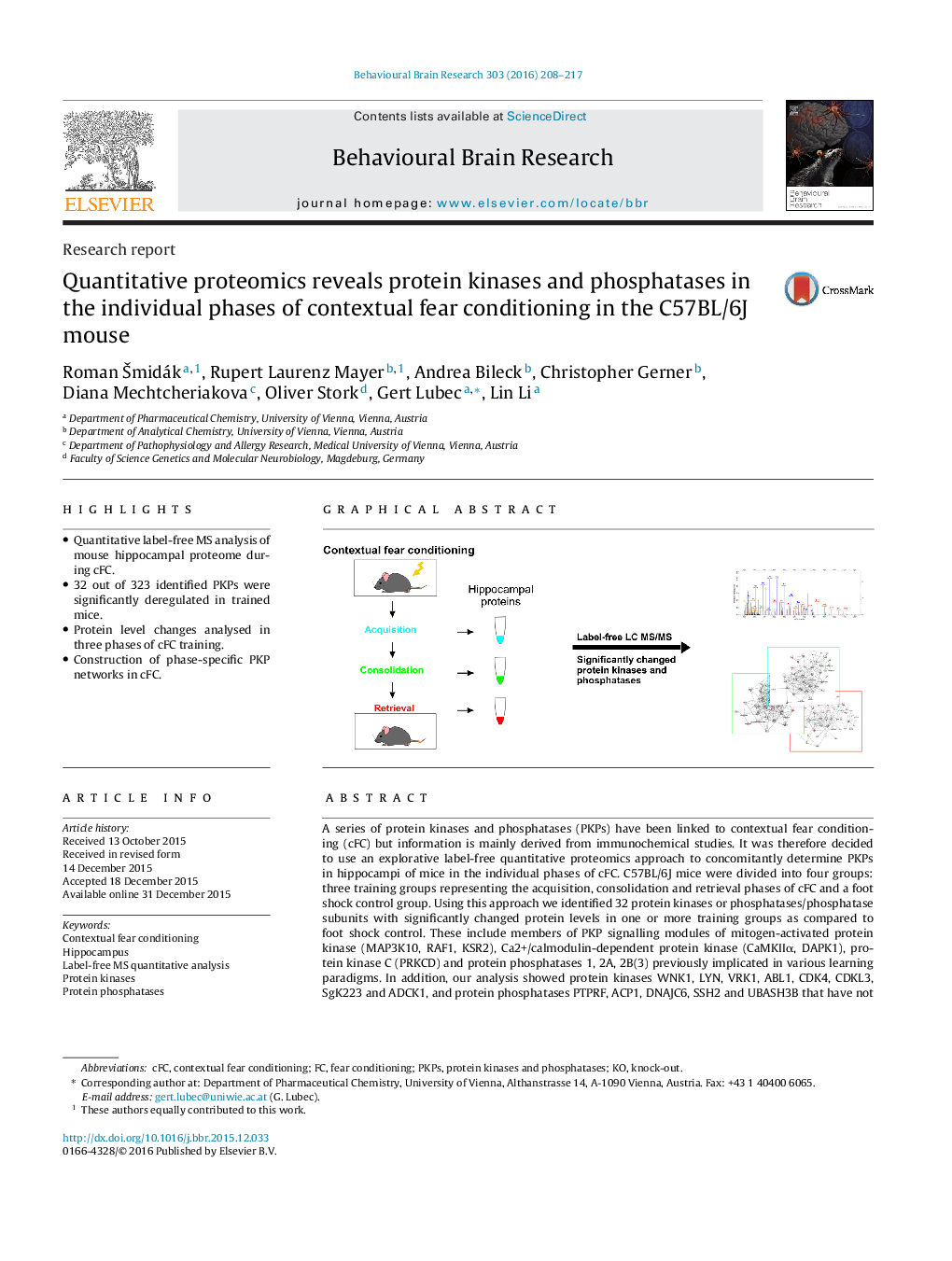| Article ID | Journal | Published Year | Pages | File Type |
|---|---|---|---|---|
| 4312243 | Behavioural Brain Research | 2016 | 10 Pages |
•Quantitative label-free MS analysis of mouse hippocampal proteome during cFC.•32 out of 323 identified PKPs were significantly deregulated in trained mice.•Protein level changes analysed in three phases of cFC training.•Construction of phase-specific PKP networks in cFC.
A series of protein kinases and phosphatases (PKPs) have been linked to contextual fear conditioning (cFC) but information is mainly derived from immunochemical studies. It was therefore decided to use an explorative label-free quantitative proteomics approach to concomitantly determine PKPs in hippocampi of mice in the individual phases of cFC. C57BL/6J mice were divided into four groups: three training groups representing the acquisition, consolidation and retrieval phases of cFC and a foot shock control group. Using this approach we identified 32 protein kinases or phosphatases/phosphatase subunits with significantly changed protein levels in one or more training groups as compared to foot shock control. These include members of PKP signalling modules of mitogen-activated protein kinase (MAP3K10, RAF1, KSR2), Ca2+/calmodulin-dependent protein kinase (CaMKIIα, DAPK1), protein kinase C (PRKCD) and protein phosphatases 1, 2A, 2B(3) previously implicated in various learning paradigms. In addition, our analysis showed protein kinases WNK1, LYN, VRK1, ABL1, CDK4, CDKL3, SgK223 and ADCK1, and protein phosphatases PTPRF, ACP1, DNAJC6, SSH2 and UBASH3B that have not been directly linked to fear memory processes so far. Determination of PKPs in the individual cFC phases represents a valuable resource for interpretation of previous and design of future studies on PKPs in memory mechanisms.
Graphical abstractFigure optionsDownload full-size imageDownload high-quality image (151 K)Download as PowerPoint slide
